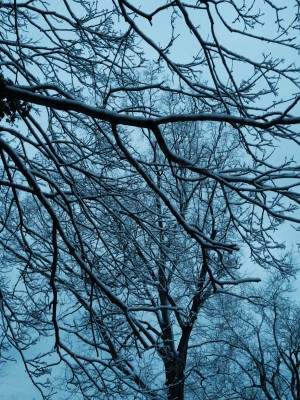
BERLIN — The extreme wacky weather this week, with snow on Monday and temperatures dipping into the low 20s midweek wreaked havoc on agriculture across the Lower Shore, including an iconic family peach orchard in Sussex County that lost its entire crop.
A cold front passed through the region early this week, causing a surprising light snow overnight on Monday and daytime temperatures only topping out in the 40s in early April. However, the real deep freeze kicked in late Tuesday night and throughout the early morning hours on Wednesday with temperatures dropping into the 20s. For Bennett Orchards in Frankford, the popular family farm that provided fresh local peaches throughout the region including the majority for the Berlin Peach Festival, the deep freeze resulted in catastrophic losses.
“It’s a very sad day here at Bennett Orchards,” the statement from the company on Wednesday afternoon read. “After six hours of 23 degree temperatures, it appears that virtually our entire 2016 peach crop has been destroyed.”
In its statement, Bennett Orchards officials said they were still surveying the damage on its other staple crops and there was early reason for optimism, despite the loss of the peach crop.
“We’ll post more updates in the days to come, but we’d like to thank all of our wonderful customers for their thoughts and prayers on a very difficult night for us,” the statement reads. “The blueberries appear to have survived unscathed, so we look forward to seeing everyone in June for a bountiful crop.”
Across the rest of the Lower Shore, farmers were scrambling to cover what crops they could that are in the ground already, from strawberries and blueberries to early wheat and barley. The big staple crops on the shore, including corn and soy beans for example, have not yet been planted for the most part, but many others are already coming up and producing buds.
Former Worcester County Commissioner and local farmer Virgil Shockley said on Wednesday the April cold snap on Tuesday night and into Wednesday had he and his colleagues scrambling.
“We worked until dark covering up as much as we could,” he said. “We think we’re going to be okay but I’m not sure at this point. If we get another cold snap, and it looks like that might happen again this weekend, some of these crops could be in trouble.”
Shockley said many of the “U-pick” strawberry and blueberry operations in Worcester likely took a hit this week. He also voiced concern about the early wheat and barley crops in the county. Of the 69,000 acres of farmland in Worcester, about 15,000 to 18,000 are currently planted in wheat and barley.
“The biggest hit in Worcester would likely be the wheat and barley,” he said. “Wheat and barley are usually harvested in June, so they are pretty far along already, with barley ahead of the wheat. The barley heads might already be exposed, and if they are, they likely took a beating.”
Shockley said there might be more concern for agriculture across the Lower Shore about what might happen going forward than what happened this week with the drastic temperature drops. He said the current conditions are not conducive to planting the big staples including corn and soy beans.
“Right now, if it turned absolutely perfect for about 10 days, we would be okay,” he said. “Everything is running about two weeks behind. The ground temperatures are too cold plus with all the rain, it’s going to be interesting to see how this turns out.”
Jessica Flores from the University of Maryland Extension Office in Worcester County said she was paying close attention to the situation with Bennett and some of the other orchards in Sussex. Flores said it was too early to tell the extent of the damage of the sudden freeze here although she was certain there were some crop losses.
“Right off the bat, I know a lot of the strawberry producers are scrambling right now,” she said. “Anything that is prone to frost needs to be covered up, and that includes most berries that are already in the ground.”
Flores said a relatively warm winter had many farmers across the shore ahead of schedule, but this week’s wacky winter weather likely created setbacks.
“It’s been a fairly mild winter and a lot of farmers and producers were worried something like this might happen,” she said. “A lot of the fruits have started to bud and once the frost hits the flowers, they’re done.”
U-pick operations like strawberries and blueberries are popular in Worcester in the summer and many of those were likely exposed to the elements this week.
“The strawberries for the U-pick season were actually planted in the fall and they remain covered all winter,” she said. “Most of them are still covered, but there are likely some that didn’t survive this week.”
While berries and low-lying crops can and were covered, there was little help for the tree fruits such as peaches and apples in some cases, according to Flores.
“Everybody is paying close attention to it,” she said. “The orchards took the biggest hit because you can’t cover up trees.”
Flores said another orchard in Sussex had a helicopter flying over its trees early Wednesday morning in an attempt to push warmer temperatures from high elevations down in an effort to save the crop.
“It might be 29 or 30 degrees down at tree level, but a little higher it might be 34 or 35 degrees,” she said. “Hovering that helicopter over the trees might raise the temperature four or five degrees. That’s how thin a margin they’re dealing with.”

